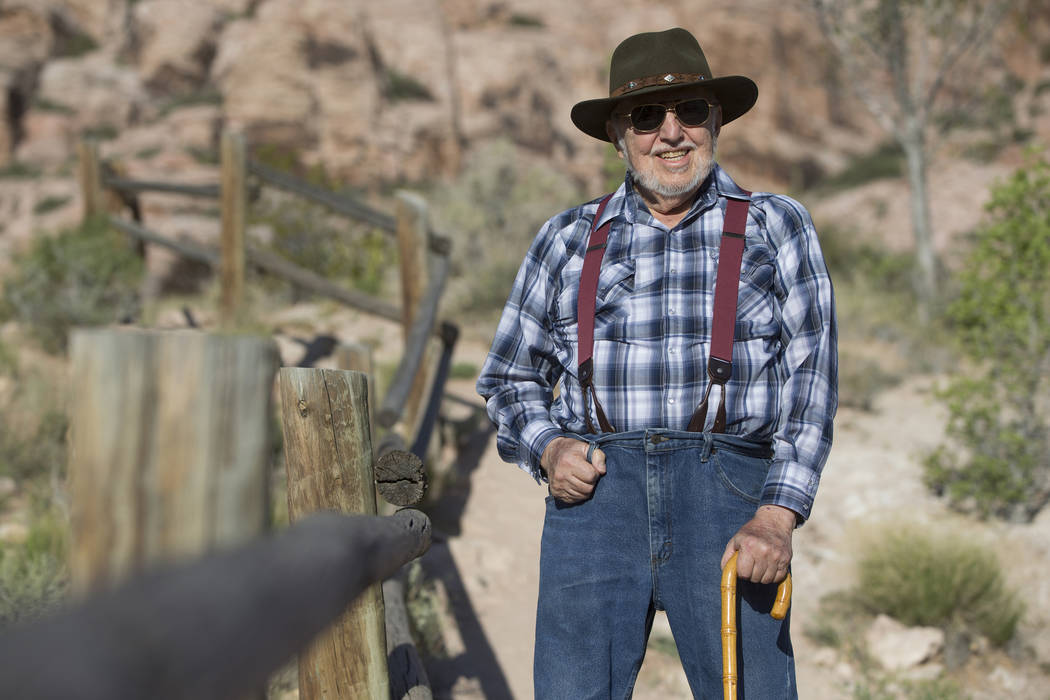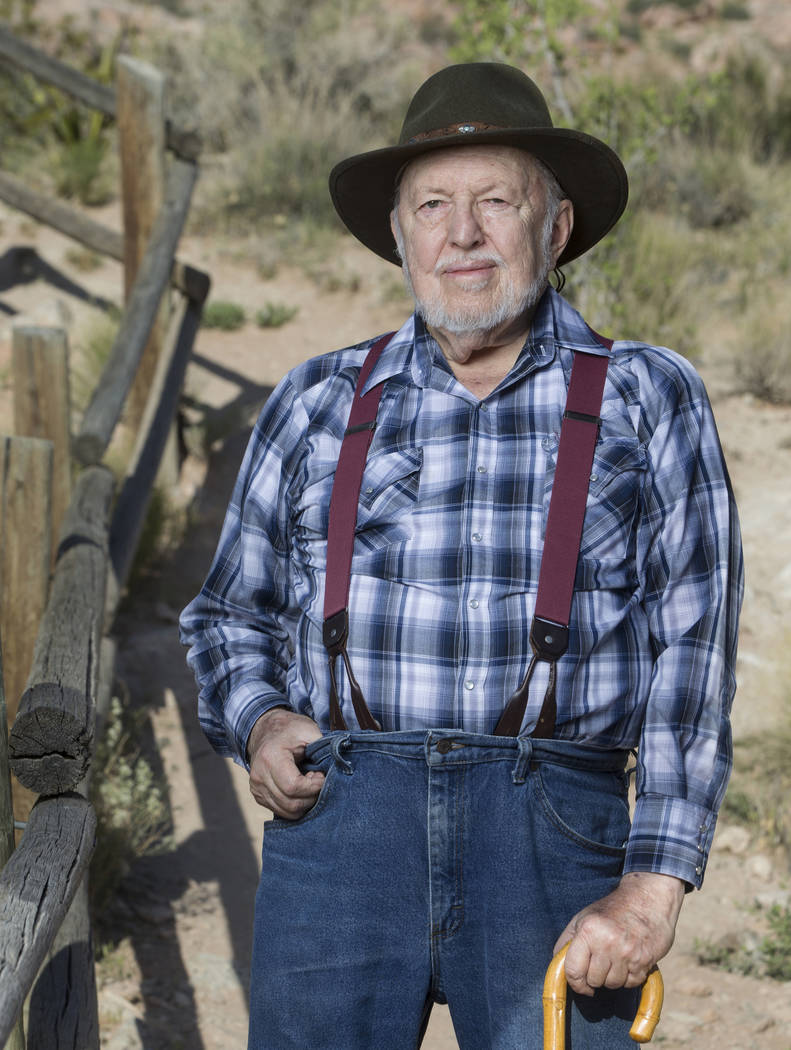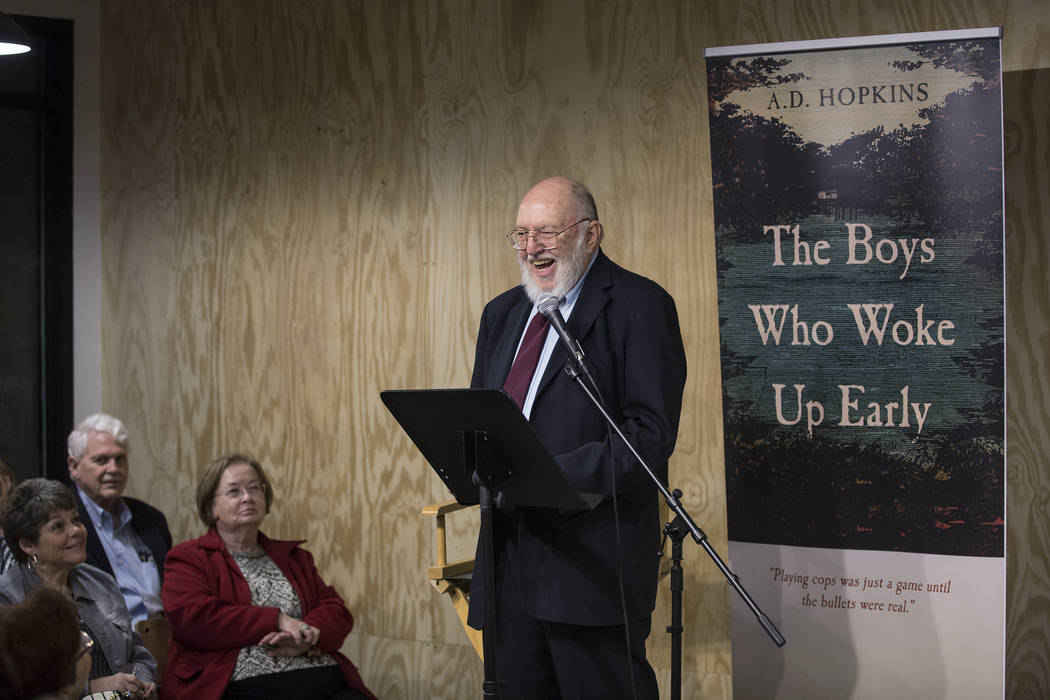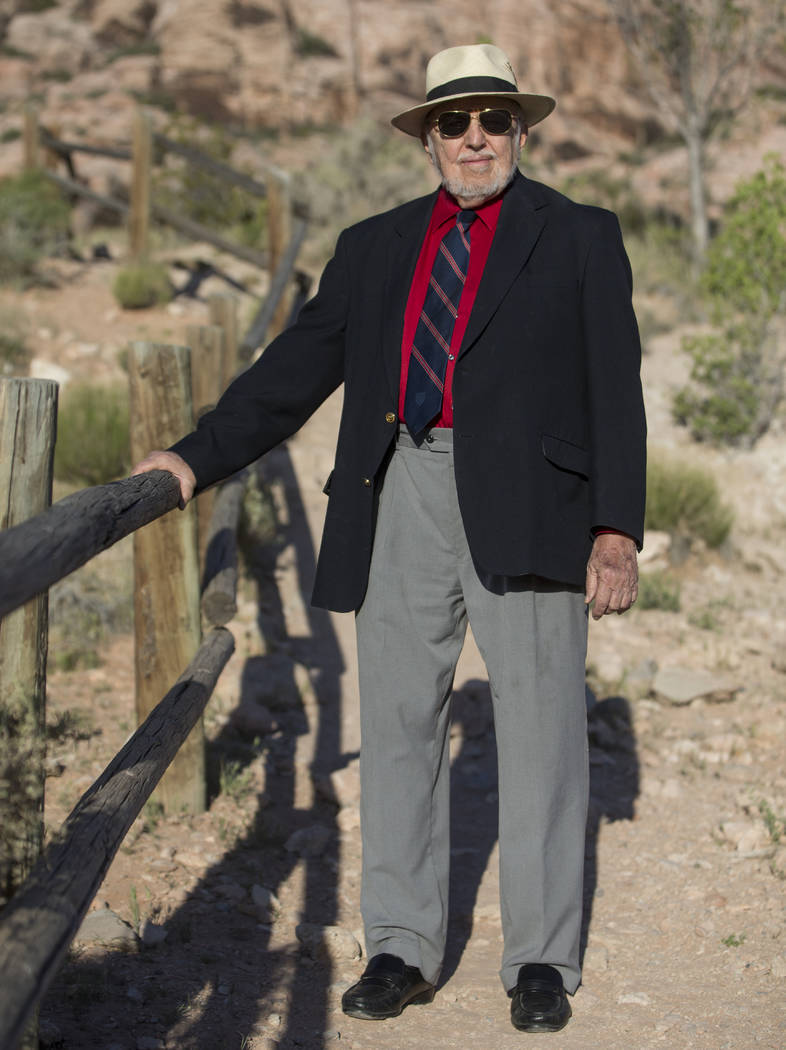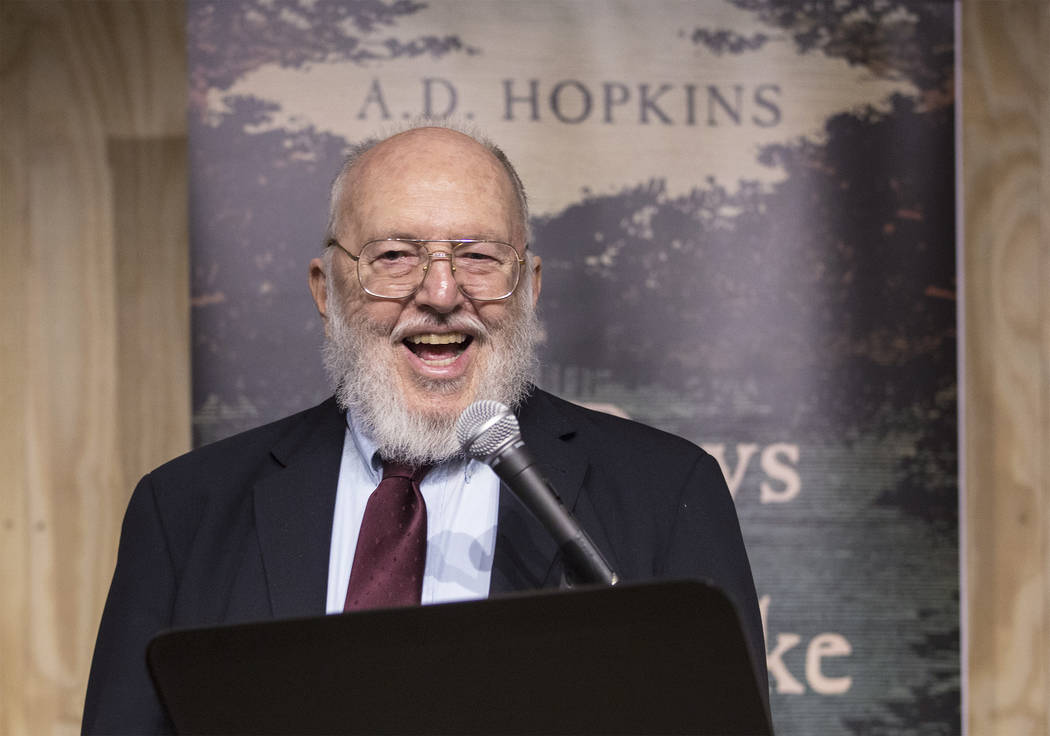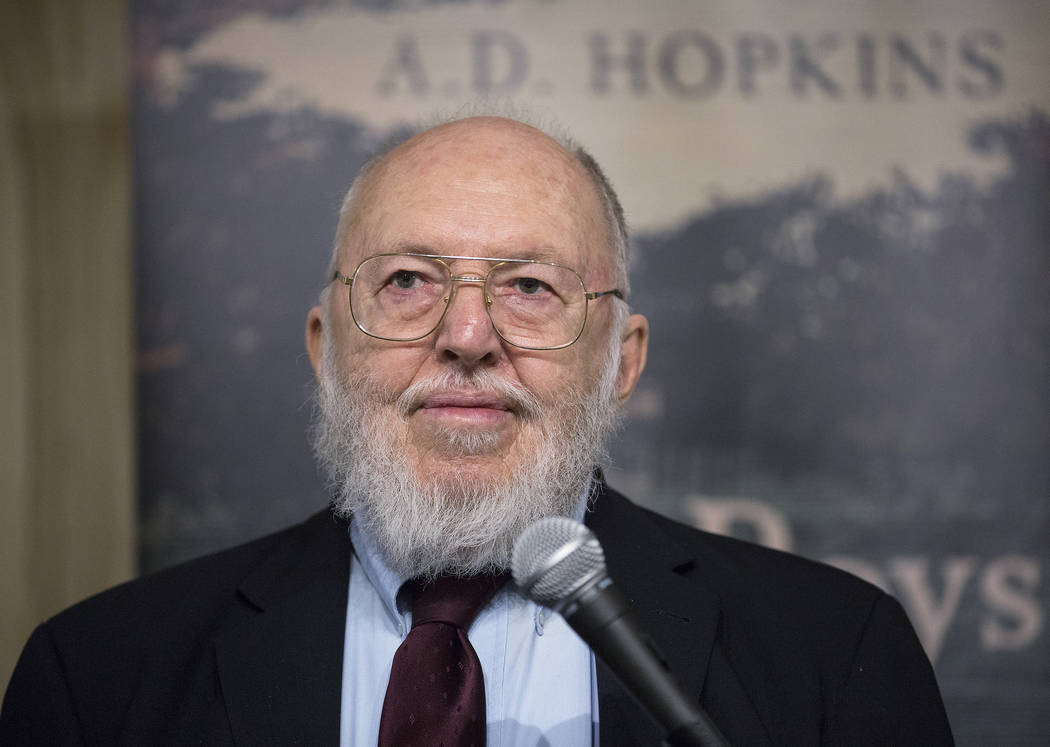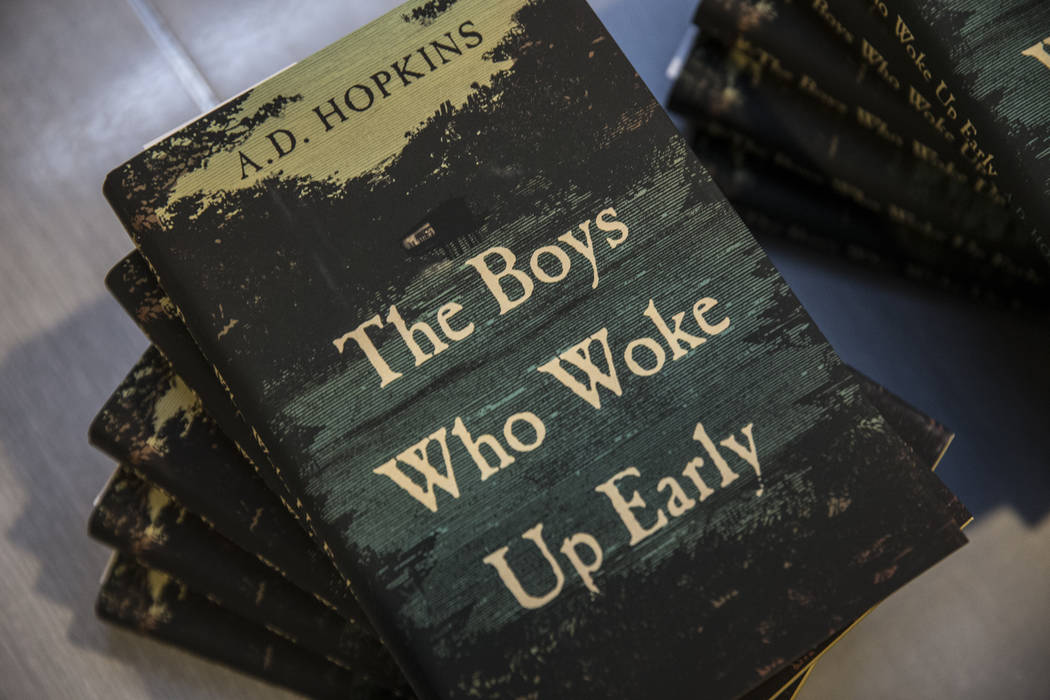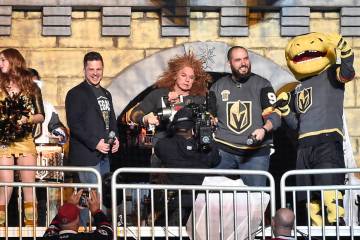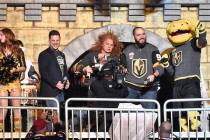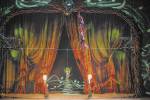Las Vegas author’s debut novel is a coming-of-age story
A.D. Hopkins spent decades getting to know Las Vegas as a newspaper reporter and editor. So you’d figure that his debut novel would be about Mafia wiseguys, only-in-Vegas happenings and the glitz of the Strip.
And it is, but only if you replace the wiseguys with rural Virginia good old boys, the Vegas happenings with small-town goings-on, and the glitz of the Strip with the grit of midcentury western Virginia.
“The Boys Who Woke Up Early” (Imbrifex Books, $23) is a coming-of-age story, not only for its teenage main characters, but for a town and a country being yanked out of the Eisenhower ’50s into the Kennedy ’60s while such vestiges of the old ways as racial prejudice and the Ku Klux Klan stubbornly hang on.
“I think it’s a period piece with universal appeal,” says Hopkins, a Southern Nevadan for nearly 50 years and a member of the Nevada Newspaper Hall of Fame.
Hopkins began his career at papers in Virginia and North Carolina before coming to Las Vegas. At the Review-Journal, he wrote features, did investigative reporting and edited the paper’s Sunday magazine, The Nevadan. He has contributed to nonfiction books about Nevada history, and “The Boys Who Woke Up Early” is his first novel.
Close to home
The book — which Hopkins says he has been writing on and off for 30 years — begins when Stony Shelor is intrigued by Jack Newcomb, a new student he sees on the first day of classes at Jubal Early High School in 1959. The new kid is like nobody Stony has met — Jack wears a beret, carries a clarinet and is fascinated with the idea of being a private eye — and the pair navigate high school, small-town life, love, violence, class divides and racial prejudice, adulthood, family secrets and even a showdown with the Klan.
The town where the story takes place isn’t real, but grew out of several towns Hopkins came to know as a young reporter. If it did exist, Hopkins says, it wouldn’t be far from Stuart, Virginia, his hometown. Characters aren’t based on actual people, even if Hopkins has heard from readers from back there who believe otherwise.
“Most everything in the book happened somewhere to somebody, but not in any one town and not to two guys who happen to be fictional guys, so nothing ever happened to them,” he says, smiling.
Hopkins includes references to songs and TV shows of the time, adding such authentic touches as the Klan robe one character finds hidden in her home. He says such details grew out of stories he has heard over the years and his own reporting experience.
“The incident of finding the robes, I heard two or three stories like that from credible people, not necessarily in my hometown,” says Hopkins, who covered a few Klan rallies in the ’60s.
“The characterization of the police and the way small sheriff’s offices work, I learned that entirely on the job. And corrupt DAs, or CAs, I guess they were called there, commonwealth attorneys, I met on the job. I met some good (CAs) and some terrible ones.”
‘Warts and all’
Writing the novel without his journalism experience “would have been tough,” Hopkins says, because he wouldn’t have met people who helped inform his characters.
The language characters use also is true to the time, even to the extent of a character using a racial pejorative now described by just a consonant. Did he have any trepidation about using it?
“You mean the N-word?” Hopkins says. “When I was working on The Nevadan, I learned that if you don’t portray it exactly how it was, warts and all, somebody’s going to say, ‘Those African Americans weren’t treated so bad.’ They were treated horribly, and the use of the terminology is part of how they were treated.
“All I can do is try to portray the characters, and one difference in the characters is whether they use the word or not. Stony would never use it … Jack will go out of his way to use it.”
“Yeah, there was some trepidation,” he says, but “I made the decision (that) to not use it was wrong.”
A sequel … maybe
The novel is serious, funny, even sweet and nostalgic at times. “I think the main thing I wanted to show was what it was like being a white teenager in 1960,” at a time when racial attitudes were changing, and how “even very biased people such as Jack contribute to change if they behave ethically.”
The novel ends on a mild emotional cliffhanger. While Hopkins didn’t intend for it to set up a sequel, he says readers have been asking for one and he’s thinking about it. In the meantime, Hopkins has written a short story for this year’s edition of Las Vegas Writes that is to be published in conjunction with the Las Vegas Book Festival.
“I’ve had thoughts of doing other books. I can sit down in a Barcalounger or somewhere and come up with four or five good ideas for novels in a half-hour probably, but that doesn’t mean I’m actually capable of writing them,” Hopkins says, laughing.
Besides, he jokes, “I’m 75 years old. If it takes me as long to get the next one published as this one, I’d be 110.”
Contact John Przybys at jprzybys@reviewjournal.com or 702-383-0280. Follow @JJPrzybys on Twitter.



